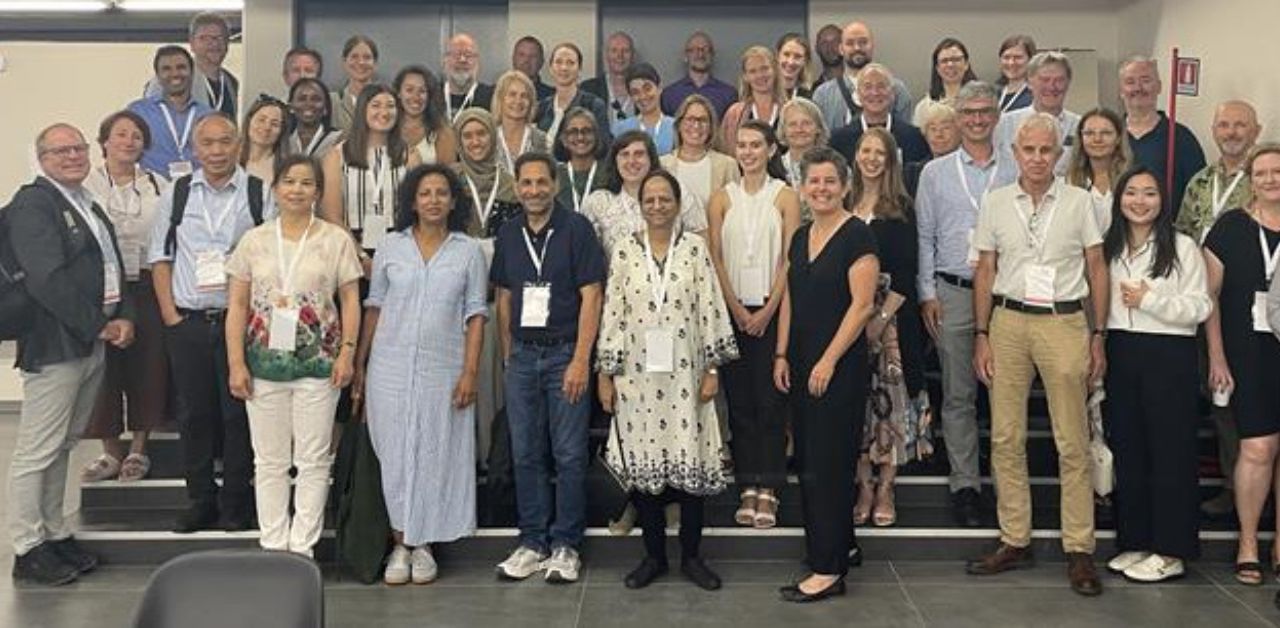In August, The International Association for Suicide Prevention organised a Partnerships for Life (PfL) pre-conference workshop at the 20th European Symposium on Suicide & Suicidal Behaviour (ESSSB20) in Rome. The event attracted 57 participants from diverse sectors in 22 countries, who were invited to focus on four timely topics and challenges for national suicide prevention programmes: the development of/revisions to national suicide prevention strategies and action plans; how to translate strategy into effective implementation; realising the ambition of a whole-of-government approach to suicide prevention; and appropriate methodologies for summative evaluation of national suicide prevention strategies. The workshop adopted the World Café method, in which structured conversations in small groups were facilitated and stimulated by brief inputs from suicide prevention experts, with a view to facilitating open discussion, sharing knowledge and connecting perspectives on each key topic.
Overview of discussions on key topics
In considering the development and planning of a suicide prevention strategy for the first time, participants highlighted the need to adopt a cross-sectoral approach, seek political endorsement and support, enhance surveillance, monitoring and evaluation, and involve diverse communities. Various challenges were identified, including stigmatising attitudes to suicidal behaviour, religious beliefs, legislative barriers and media reporting. The importance of engaging political leaders, professionals and individuals with lived and living experience was emphasised.
While the need to tackle stigma and enhance public awareness of the causes and characteristics of suicidal behaviour was acknowledged, concern was expressed about the danger of ‘normalising’ the behaviour, thereby increasing the risk of increasing its acceptability (and frequency) in the population. In planning the strategic approach to suicide prevention in any country, attention needs to be paid to cultural (and sub-cultural) attitudes, which might vary from a high level of tolerance (e.g., in Switzerland) to condemnation (e.g., criminalised status in more than 20 countries).
In the small-group discussion focused on the revision or refreshing of national strategies, the crucial importance of political will and access to resources was recognised. It was stressed that strategies need to be informed by up-to-date evidence and evolve constantly, to take account of the most recent trends in suicidal behaviour, and shifts in the wider socioeconomic and sociocultural context (‘social determinants’), infrastructure and resources. The suicide prevention community has to be agile and flexible in responding to these changes—the establishment of appropriate governance structures, embedded within the strategy, is an essential prerequisite of effective planning.
On implementation, it was recognised that a relentless drive to ensure effective cross-sectoral collaboration, involving health, education and other policy areas, will strengthen suicide prevention delivery, contributing to the gain, sustain and maintain approach. In addition, participants stressed the importance of basing suicide prevention strategies on evidence, while addressing social inequalities, e.g., linked to housing conditions and socioeconomic status.
Regarding the adoption of a whole-of-government approach to suicide prevention, participants emphasised the importance and challenge of establishing effective, coordinated action across multiple government sectors and agencies to address the issue comprehensively. It was noted that countries are at different stages of readiness to adopt such an approach; inevitably, some will need more time and support. There was agreement that the politicisation of the whole-of-government approach is counter-productive and should be avoided, if possible.
The evaluation of approaches formed the basis for the final topic of discussion at the workshop. This is an area which often receives minimal attention, despite its importance in identifying interventions and strategies that are effective (and, equally, those that are ineffective). It was noted that the PfL programme currently supports the conduct of two systematic reviews: an umbrella review of the effectiveness of interventions commonly included in national suicide prevention strategies; and a systematic review of the outcomes of national strategies, considered as a whole. The findings of these reviews are expected to be available later this year. Initial findings were presented at a special symposium at ESSSB20. The importance of reliable, comprehensive data on the national strategy implementation process, as well as on the strategic outcomes (suicidal behaviour, including, where feasible, suicide attempts), was stressed. Many countries have a national strategy in place but lack sufficient and/or reliable data, which seriously undermines opportunities for learning and evaluation. A mix of external evaluation and self-evaluation was recommended, along with fostering an evaluative mindset within the planning and implementation teams.
Future plans/suggestions
The workshop at ESSSB20 concluded with reflections on the value of collaboration and a renewed commitment to fostering resilience in the suicide prevention workforce facing the challenges of implementation of effective life-saving interventions. Participants were encouraged to take or support concrete steps towards the planning, implementation and evaluation of national suicide prevention strategies, ensuring that the voices of individuals with lived and living experience are heard and integrated into the process.
With thanks to the expert facilitators:
Keith Hawton, Emeritus Director, Centre for Suicide Research, University of Oxford, UK.
MMag Beate Gruber, Health Expert, Gesundheit Österreich GmbH, Austria
Ann John, Professor of Public Health and Psychiatry, Health Data Science, Swansea University, UK.
Joy Ladurner, Psychosocial Health,Gesundheit Österreich GmbH, Austria
John Meehan, Assistant National Director / Mental Health Planning and Head of National Office for Suicide Preventio
Thomas Niederkrotenthaler, Associate Professor of Public Health, Medical University Vienna, Austria.
Rory O’Connor, Chair in Health Psychology (Mental Health & Wellbeing), University of Glasgow, UK.
Steve Platt, Emeritus Professor of Health Policy Research at the University of Edinburgh, UK.
Ping Qin, Professor – National Centre for Suicide Research and Prevention, Norway
Dan Reidenberg, Managing Director of the National Council for Suicide Prevention, USA.
Vanda Scott, International Adviser, IASP
Lakshmi Vijayakumar, Professor and Head of the Department of Psychiatry in the Voluntary Health Services, and founder of SNEHA, Chennai





